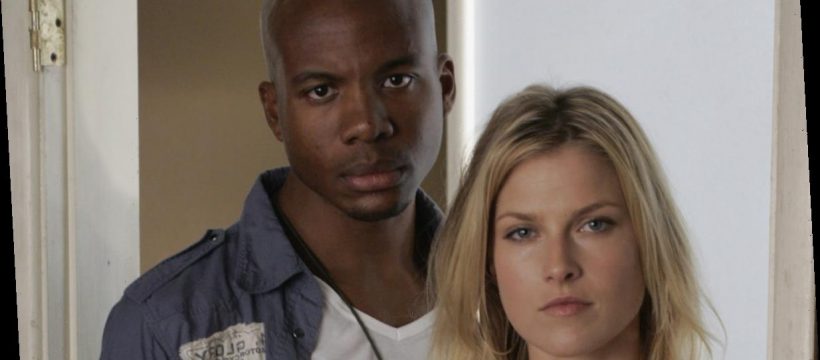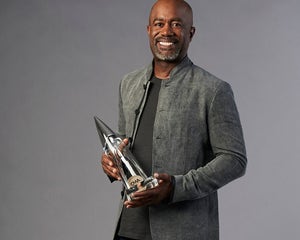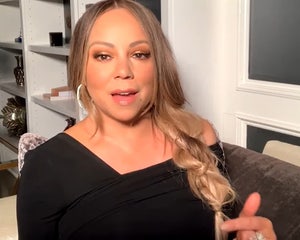Roberts says he “couldn’t help wondering whether race was a factor” in their strained, on set relationship.
“Heroes” star Leonard Roberts and the actress who played his on-screen wife, Ali Larter, allegedly had instant conflict on the show — and he claims that tension led to him getting axed after the first season.
In a lengthy essay for Variety, the actor opened up about his experience as a Black man on the incredibly popular NBC series, the lack of Black voices behind the scenes on the show and the alleged reasons behind his unceremonious dismissal. He added that “the larger moment we find ourselves in” is what compelled him to open up now.
Read the essay in full here.
Darius Rucker Reveals Casually Racist Moment with Country Radio Ahead of CMA Awards
The actor claims he and other actors of color were treated different from the start. First, he wasn’t given a meeting with writing staff about his character, a courtesy he says was extended to the rest of the cast. Then, he and other Black adult series regulars were “relegated to the back and sides” during promotional photoshoots. At the time, he says, they were told it had to do with their height.
Roberts says his debut was then pushed from the premiere to the sixth episode and the “volatile relationship” between his and Larter’s characters quickly became his reality. The actor says he found himself “on the receiving end of pushback from my co-star regarding the playing of a particularly tense scene” and claims she “took umbrage with the level of intimacy being suggested between our characters.”
The actor says he compared notes with Adrian Pasdar about an intimate scene he shared with Larter and found she was more collaborative and open to improvisation with Pasdar. The whole situation made Roberts question why Larter “had exuberantly played a different scene with [Pasdar’s] character involving overt sexuality while wearing lingerie, but found aspects of one involving love and intimacy expressed through dialogue with my character, her husband, disrespectful to her core.”
He adds, “I couldn’t help wondering whether race was a factor.”
Roberts further alleges Larter expressed disappointment over a shoot they did together for a series of Entertainment Weekly covers, telling him, “I’m hearing our cover is selling the least of all of them.” To Roberts, “the subtext was clear: I was tarnishing her brand.”
Larter didn’t comment on the piece. TooFab has also reached out to her rep for comment.
OG Charmed Star Calls for Ceasefire In Reboot Feud; Shannen Doherty Also Chimes In
Roberts says he was told his character would be back for the second season, but then claims to have received a voicemail from series creator Tim Kring telling him that, because of “the Ali Larter situation,” they’d be killing off his character between seasons. When Roberts met with both Kring and executive producer Dennis Hammer, he says Kring told him that “because of my co-star, he just couldn’t make my remaining on the show work story-wise.”
“I also questioned how a ‘we’ issue could be cited as justification for the firing of ‘me,'” writes Roberts. He claims that, when he continued to push back, Hammer told him, “Don’t think of this as a situation where the Black man loses and the white woman wins.”
After he filmed his last episode of the series, Roberts says a white male costar told him, “Can you really say you lost your job because you’re Black? C’mon, man. They’re gonna always keep the hot blonde on the show. That’s just Hollywood.” He says he responded by telling the unnamed actor that, “as a white man, to ask me to deny I lost my job because I was Black, but accept my co-star kept her job because of attributes he clearly believed identified her as white was, in fact, a quite literal embodiment of systemic racism.”
Roberts says his experience is “all-too-familiar” for Black creatives in the industry and while he won’t flat-out call the show’s cast and crew racist, his experience reinforces his belief he “worked in an environment in which whiteness was the default and ideal.”
He concluded his post by saying he hopes that by sharing his story he’s “part of a rebuilding that ensures my child a future in which she feels heard, seen and valid.” That, to him, “would make me feel like a real hero.”
After seeing a summary of the actor’s claims, Kring told Variety “that a lack of diversity at the upper levels of the staff may have contributed to Leonard experiencing the lack of sensitivity that he describes.” Hammer, meanwhile, simply called Roberts a “great guy and total pro.”
Read the essay in full at Variety.
Mariah Carey on Enduring Racism in Childhood, Derek Jeter, Strained Relationship with Mother
Source: Read Full Article



